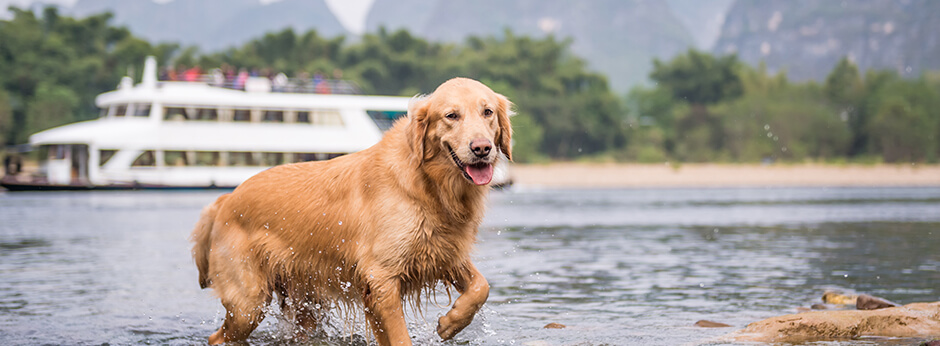Fact or Fiction: Only Dogs that Swim in Rivers Are at Risk for Leptospirosis
Published April 24, 2019


That is fiction!
Leptospirosis is bacterial disease and one of the most widespread zoonotic diseases, meaning that it can infect both animals and people. A variety of domestic and wild animals can carry and spread leptospirosis. Since wildlife, such as rodents, raccoons, and opossums, can spread the disease, dogs in urban settings are at risk for leptospirosis as well. Dogs can also become infected by drinking contaminated water from rivers, lakes, puddles, or even contaminated water bowls. The bacteria can easily penetrate the skin, enter the blood stream and multiply, spreading throughout the body and impacting many organs, particularly the kidneys and liver.
Leptospirosis vaccines are effective in helping to prevent disease, and some vaccines are proven to prevent spreading the disease. Veterinary experts recommend vaccinating dogs at risk for the disease. This would include almost all dogs, since even exposure to your backyard or any outdoor environment can put your dog at risk. Dogs will receive an initial vaccination, followed by a booster within 2–4 weeks, and then receive the leptospirosis vaccine on an annual basis. Since this is not a long-acting vaccine, it is important to stay on schedule with annual booster vaccines, as the series would require re-starting if it is administered late.
Protect your pet and family from this deadly disease. Come in today for a best value wellness package, which include your dog’s essential vaccines along with leptospirosis and a doctor’s exam, starting at $90.
Prices subject to change. See current prices: https://essentialspetcare.com/services.



